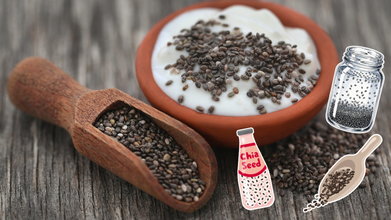- Health Conditions A-Z
- Health & Wellness
- Nutrition
- Fitness
- Health News
- Ayurveda
- Videos
- Medicine A-Z
- Parenting
There Is No 'Safe' Amount Of Processed Meat To Eat, New Study Finds; How You Can Avoid While Dining Out?

Credits: Canva
For decades, nutrition experts have urged moderation when it comes to processed meats. Think bacon, hot dogs, sausages, ham, and deli meats. They’ve long been linked to increased risks of heart disease, cancer, and type 2 diabetes. But a major new study suggests that moderation may not be enough. According to researchers, there is no "safe" amount of processed meat consumption—even the smallest daily serving could heighten health risks.
This research, conducted by a team from the University of Washington in Seattle, analyzed over 70 previous studies involving several million participants. Their findings challenge the notion that small or occasional consumption of processed meats is harmless, suggesting instead that even minimal intake can incrementally raise the risk of serious health conditions.
Even minimal habitual intake of processed meat could elevate the risk of type 2 diabetes and colorectal cancer—and no amount was proven to be risk-free.
Processed meats are defined as meats that have been smoked, cured, salted, or preserved with chemical additives. These methods, while extending shelf life and enhancing flavor, introduce compounds such as nitrates and nitrites that have been tied to adverse health outcomes.
In the new study, researchers employed what’s known as the Burden of Proof methodology—a conservative statistical model that avoids exaggerating risk. The study’s strength lies in its cautious approach, meaning its results are likely understatements of the actual risks.
One of the more shocking findings was that consuming just one hot dog per day was associated with:
- An 11% greater risk of developing type 2 diabetes
- A 7% greater risk of colorectal cancer, compared to no processed meat consumption at all.
Dr. Christopher Murray, one of the senior researchers involved, emphasized that “monotonic increases in health risk”—a pattern where more consumption consistently led to more harm—were observed across multiple disease categories. This pattern strongly suggests no threshold of safety.
What About Sugary Drinks and Trans Fats?
While processed meat fared the worst in the analysis, other dietary culprits didn’t escape scrutiny.
Consuming just one can of sugar-sweetened soda daily was linked to:
- An 8% higher risk of type 2 diabetes
- A 2% increased risk of ischemic heart disease
Even a small daily intake of trans fatty acids, commonly found in processed baked goods and margarine, increased the risk of heart disease by 3% compared to no intake.
These results, while seemingly modest, are significant at the population level—especially when you consider that these dietary habits are widespread. It’s crucial to interpret these findings with nuance. The study’s associations, while consistent, are relatively weak and do not establish direct causation. Much of the data is based on self-reported dietary habits, which can be prone to inaccuracies. However, the conservative methodology means the reported risks are likely minimum values, potentially underestimating the true dangers.
A commentary published alongside the study acknowledges the role of ultra-processed foods in improving food accessibility and shelf life, especially in regions with limited access to fresh produce. But the overarching message is clear: cutting down on processed foods is the safest bet for long-term health.
Why Processed Meat Is So Risky?
Processed meats are typically preserved by smoking, curing, salting, or adding chemical preservatives. These processes introduce or enhance compounds—such as nitrates, nitrites, and certain hydrocarbons—that have been shown to damage DNA or promote inflammation, both of which are linked to cancer and metabolic diseases.
The World Health Organization has previously classified processed meat as a Group 1 carcinogen, putting it in the same category as tobacco and asbestos in terms of cancer risk. This new study reinforces and expands on those concerns, highlighting the risks not just for cancer, but also for diabetes and heart disease.
Cutting Down on Processed Meat, Especially When Dining Out
Aim to fill at least half your plate with colorful vegetables. Think leafy greens, bell peppers, squash, and tomatoes. These nutrient-rich foods not only displace processed items on your plate but also provide protective health benefits. Completely eliminating it might not always be feasible—but experts offer strategies for cutting back in meaningful ways, especially when eating outside the home.
1 . Fill Half Your Plate With Vegetables
When dining out, aim to make vegetables the star of your meal. Choose a variety of colorful options—spinach, peppers, pumpkin, and more—to maximize nutrients and minimize the space for processed meats.
2. Avoid the Deep Fryer
Fried foods, often paired with processed meats, add unnecessary fats and calories. Opt for dishes that are grilled, baked, steamed, or sautéed instead of battered and deep-fried.
3. Pick Wholegrains
Look for menu items featuring wholegrain ingredients like brown rice, wholemeal pasta, barley, or quinoa. These not only provide more fiber and protein but also help you feel full, reducing the temptation to reach for processed meats.
4. Choose Less Processed Meats—If You Must
If you’re unable or unwilling to go fully vegetarian, select less processed cuts of meat such as grilled chicken breast or fresh fish. Avoid sausages, bacon, and deli meats whenever possible.
5. Share Plant-Based Dishes
When eating with others, suggest sharing plant-based appetizers or side dishes. This not only diversifies the meal but also reduces the overall consumption of processed meats.
The challenge, especially in low-resource settings, is to balance the benefits of food accessibility and shelf life with the imperative to reduce health risks. Innovations in food technology and policy interventions will be essential to achieve this balance.
As researchers continue to unravel the health consequences of ultra-processed foods, one message is resoundingly clear: the safest route is to limit processed meats as much as possible—and fill your plate with whole, minimally processed ingredients that support long-term health.
Have You Also Noticed Suddenly Becoming Lactose Intolerant? Nutritionist Explains Why

Credits: iStock
Have you been drinking milk all your life and suddenly your gut cannot tolerate it? Are you also finding out that you are suddenly lactose intolerant, and trying to find the reason? Nutritionist Sonia Narang might have the answer.
In a podcast with Raj Shamani, Narang decodes Indian diet and its benefits and risks, if not consumed correctly. This is when Raj Shamani throws the question of lactose intolerance, especially when someone like him has been drinking milk since childhood and can no longer tolerate it.
Also Read: Fact Check: Is Weight Lifting Safe for Teens? An Expert Explains the Risks and Safer Alternatives
What Does The Expert Say About Sudden Lactose Intolerance?
Narang first explains what lactose is and how it works in one's body. She starts with explaining lactase, which is a sugar found in milk, and digested by lactase, an enzyme found in small intestine.
She then explains that in small intestine, there are brush like formations, called villi, which further have smaller brush called microvilli. This is where lactase is made. This is what helps the breakdown of lactose.
However, she explains, overtime, whether due to age, or infection, lifestyle, bad food choices, the ability of microvilli to produce lactase decreases. She points out that as kids, the production of lactase is enough, due to less exposure to bad food choices.
Can You Reverse Lactose Intolerance?
Lactose intolerance is not an allergy. There are ways to manage or improve lactose intolerance. Narang says that the first step is to eliminate milk completely, and then start with having curd as alternative. "While curd is a dairy product, it already has bacteria that makes it pre-digested," she points out.
She also recommends to slowly introduce milk, "just two spoons between the meals". Since milk is consumed with food, it will digest slowly and by the time it reaches the intestine, small intestine will get the time to produce enough amounts of lactase to digest two spoons of milk, she points out.
Read: 5 Cow’s Milk Substitutes—And What To Look For Before You Buy
What Is Lactose Intolerance?
As per the NHS, UK, lactose intolerance is when you get symptoms like stomach ache after eating food containing lactose, a sugar found in dairy products.
What Are The Common Symptoms Of Lactose Intolerance?
- tummy pain or discomfort
- bloating
- farting
- tummy rumbling
- diarrhea or constipation
- feeling sick or being sick
What Foods Contain Lactose?
Dairy products include:
- milk
- butter
- cheese
- cream
- yoghurt
- ice cream
Many processed foods can also contain lactose, including:
- cereals
- baked foods like bread, crackers, cakes, biscuits, and pastry
- sauces and salad dressings
- diet and protein shakes
Note: Health and Me does not promote any changes to be made in your diet. Always consult your nutritionist or dietitian and your doctor before changing your diet. This piece is based on publicly available content.
Superfood Chia Seeds Can Also Be Risky For Some, Know Who They Are

Credits: iStock/Canva
Chia seeds, a superfood as we all know and have a number of benefits, however, if not taken properly, it can increase risks and could worsen your health, says Dr Shubham Vatsya, a gastroenterologist, and hepatologist at Fortis Vasant Kunj. He is known for making health related content on his Instagram page, targeting foods and habits that impact gut health, liver, and more.
In one of the videos which garnered over one million views, he talks about the risk of chia seeds. The video is titled 'Chia Seeds Are Not For Everyone".
What Are The Risks Of Consuming Chia Seeds?
Dr Vatsya points out that if chia seeds are consumed without knowing how your body works and without proper hydration, it could worsen your health.
Talking about who should be more careful before making chia seeds part of their diets? He gives four instances:
People With Low Blood Pressure Should Avoid Chia Seeds
He says many people, especially many women have low blood pressure and they may have included chia seeds in their diet without knowing much about it. Why does this happen? Chia seeds contain quercetin, which is an antioxidant and it could reduce your risk of several health condition, including heart diseases. However, points out Dr Vatsya, it is high in fiber, which could further lower your blood pressure. If you already have a low blood pressure, this could cause you a health risk.
People Who Are On Blood Thinning Medicines Should Avoid Chia Seeds
Doctor says that people who are on blood thinning medicines like aspirin, especially after a heart stent, may be at risk. Why? Because chia seeds can have a blood thinning effect due to its omega-3 fatty acids content. This can increase bleeding risk. So, people on prescription blood thinners or anticoagulants like warfarin or aspirin, must avoid it.
Hydration Is Must
Chia seeds are high in fiber, which is why it is important to maintain enough hydration. What happens if you do not keep yourself hydrated enough?
Chia Seeds Could Upset Your Stomach
While getting enough fiber helps prevent and manage constipation, however, the doctor points out consuming significant amounts of fiber can cause digestive issues like gas, bloating, and abdominal pain, if not hydrated.
Hydration is the key, this is what supports bowel movement regularity and prevent any adverse effects. Furthermore, one should always add fiber to their diet in small amounts and gradually.
Read: Hair Loss In Men: Is It Related To Sweetened Drinks?
Chia Seeds Could Worsen Your Kidney Problem
Lastly, the doctor says that while chia seeds are healthy, but individuals with chronic kidney disease must be careful while consuming.
Chia seeds are rich in potassium and phosphorous. In per 2.5 tablespoon of serving, it contains 115 mg of potassium and 244 mg of phosphorous. Both these nutrients are closely monitored in people with kidney disease. Chia seeds are also high in oxalate, which can attach to calcium to form kidney stones. This is why it is important to maintain your hydration while consuming chia seeds.
Note: This is a user-generated content via Dr. Shubham Vatsya. Health and Me does not take responsibility of the content. Always consult a registered nutritionist or dietitian and your doctor before making changes to your diet.
Hair Loss In Men: Is It Related To Sweetened Drinks?

Credits: iStock/Canva
Hair loss in men is often blamed on genetics, age, or stress. But as lifestyle-linked health problems grow, doctors are taking a closer look at everyday dietary habits, including the regular consumption of sugar-sweetened beverages. While these drinks are not a direct cause of baldness, emerging evidence suggests they may quietly worsen hair loss in men who are already genetically predisposed.
“Hair loss is rarely caused by a single factor,” says Dr. Vineet Malhotra, Head of Urology and Director at VNA Hospital. “But excessive sugar intake can act as an important trigger, especially in men prone to androgenetic alopecia.”
How Sugary Drinks Disrupt Hormones Linked to Hair Loss
Sugar-sweetened beverages such as sodas, packaged fruit juices, energy drinks, and sweetened teas cause a rapid spike in blood glucose levels. To manage this surge, the body releases insulin. When this happens repeatedly over time, it can lead to insulin resistance.
“Chronic insulin resistance is known to disturb hormonal balance,” explains Dr. Malhotra. “It can increase circulating androgens and speed up the conversion of testosterone into dihydrotestosterone, or DHT.”
DHT is the hormone most strongly associated with male pattern baldness. Higher levels of DHT cause hair follicles to shrink, shorten the hair growth cycle, and gradually turn thick hair into finer, weaker strands.
The Inflammation Link: Why the Scalp Suffers
High sugar intake is also closely tied to low-grade systemic inflammation. While this inflammation may not be immediately noticeable, it affects blood vessels throughout the body, including the tiny capillaries that supply oxygen and nutrients to hair follicles.
“When microcirculation is compromised, follicles do not receive adequate nourishment,” says Dr. Malhotra. “This can slow hair growth and increase hair shedding.”
Inflammation can also push hair follicles out of the growth phase and into the resting phase prematurely. The result is often diffuse thinning rather than patchy bald spots, something many men notice before visible hair loss becomes obvious.
Metabolic Health, Gut Health, and Nutrient Deficiencies
Frequent consumption of sugary drinks is linked to weight gain, fatty liver, and metabolic syndrome, all of which can disrupt hormonal balance. Poor metabolic health can alter cortisol levels and insulin-like growth factors, both of which influence how hair follicles function.
Equally important is what high-sugar diets tend to replace. “Men who consume a lot of sugary drinks often miss out on nutrient-dense foods,” Dr. Malhotra notes. This increases the risk of deficiencies in zinc, iron, biotin, protein, and other nutrients essential for healthy hair structure and growth.
What Studies Are Showing So Far
Recent observational studies have found a higher prevalence of early-onset hair loss in young men who consume sugar-sweetened beverages daily compared to those who drink them occasionally. While these studies do not prove a direct cause-and-effect relationship, the association is strong enough to raise concern.
“The impact appears more pronounced in men with a family history of baldness,” says Dr. Malhotra. “In such cases, diet may accelerate hair loss rather than initiate it.”
Sugar Is Not the Only Culprit, But It Matters
It is important to note that sugary drinks alone do not cause hair loss. However, when combined with genetic susceptibility, high stress, poor sleep, smoking, and physical inactivity, excessive sugar intake can significantly worsen scalp health and hair thinning.
Reducing sugar-sweetened beverages, improving overall diet quality, maintaining stable blood sugar levels, and supporting metabolic health may help slow hair loss and promote healthier hair over time.
Why Doctors Are Now Asking About Diet
In clinical practice, men presenting with unexplained or rapidly worsening hair loss are increasingly being asked about their dietary habits, alongside hormonal and nutritional evaluations.
“Cutting back on sugar-sweetened drinks benefits the heart and metabolism,” Dr. Malhotra says. “But it may also offer long-term support for hair health, especially in men at risk of early hair loss.”
While genetics may set the stage, everyday choices often decide how quickly the story unfolds.
© 2024 Bennett, Coleman & Company Limited

